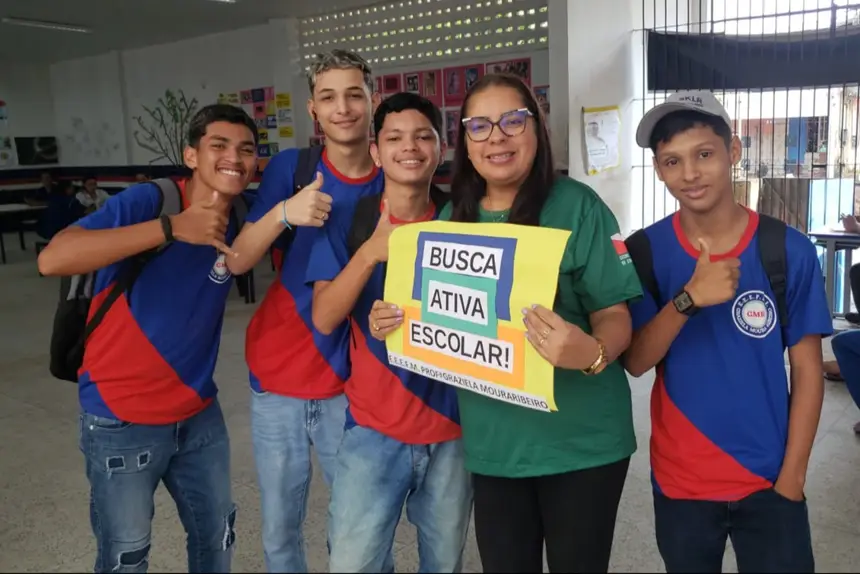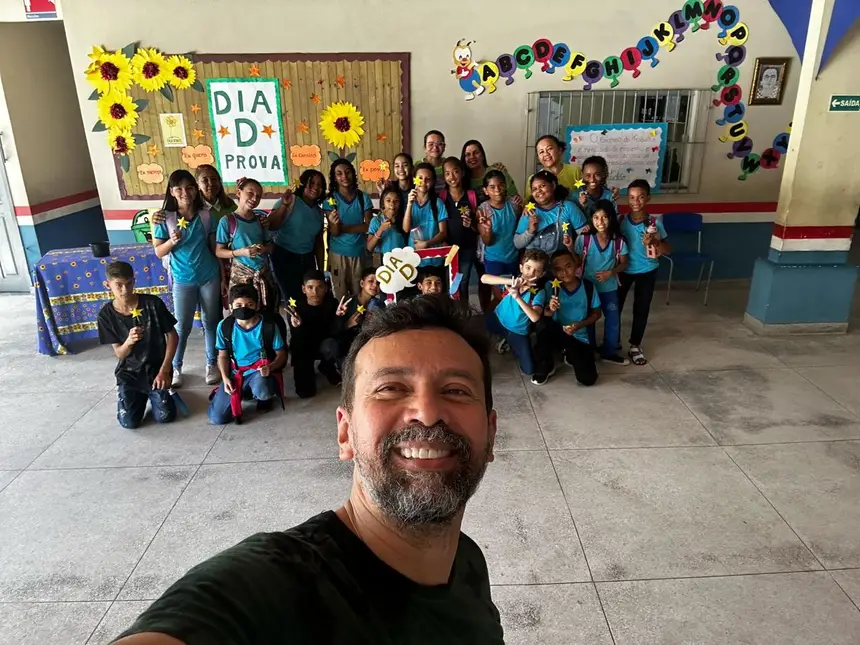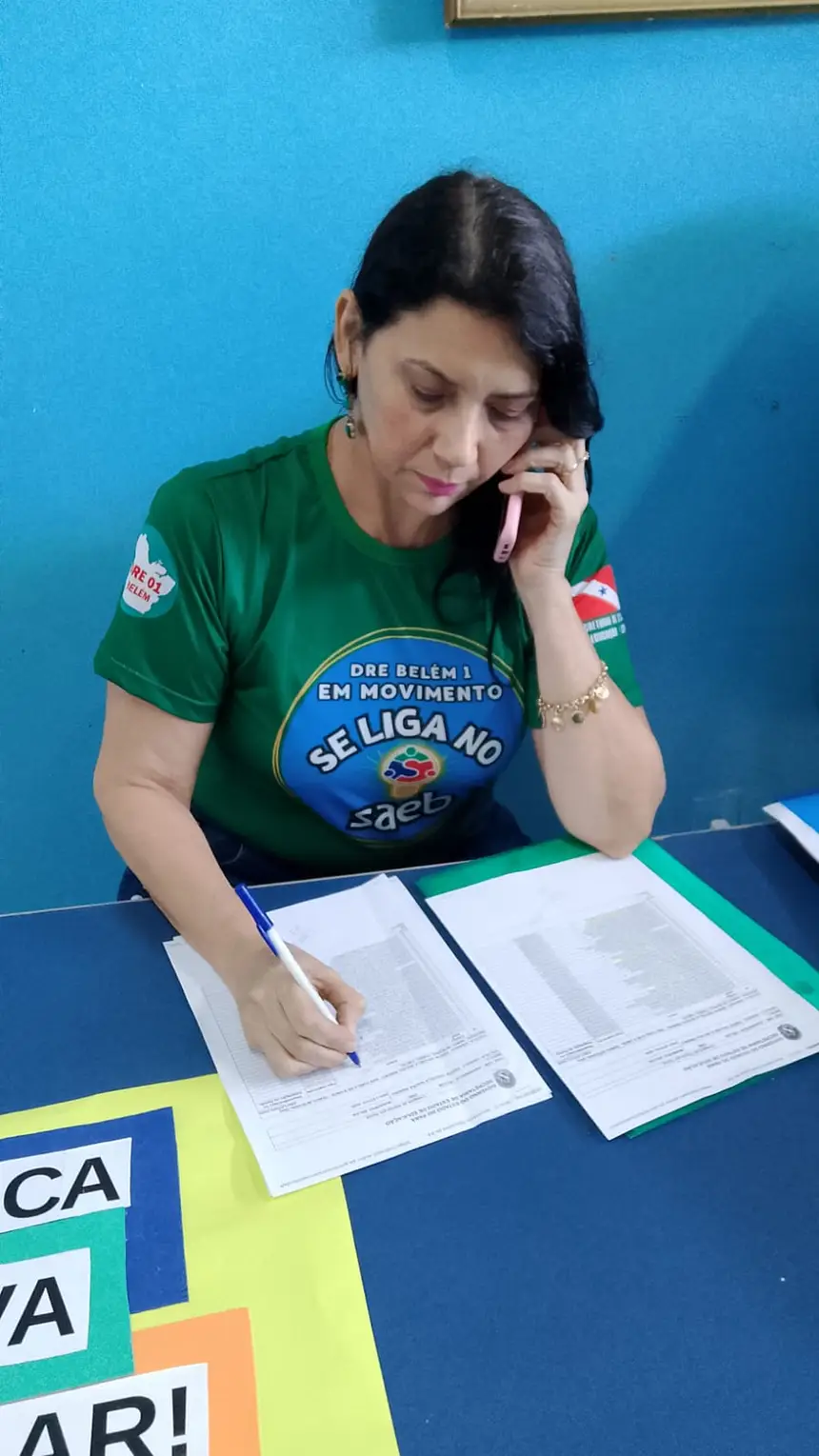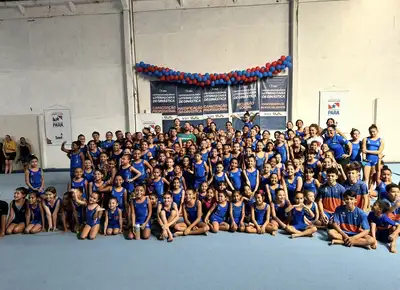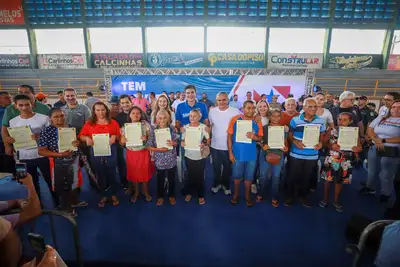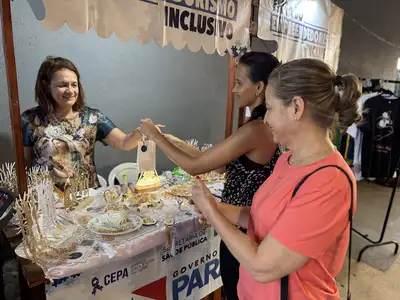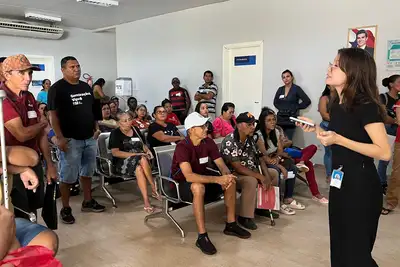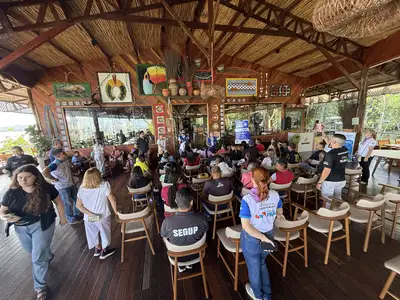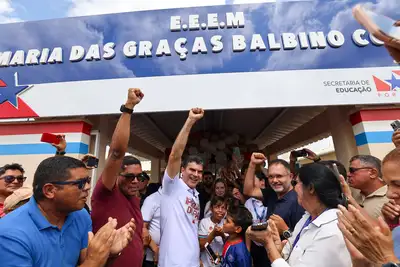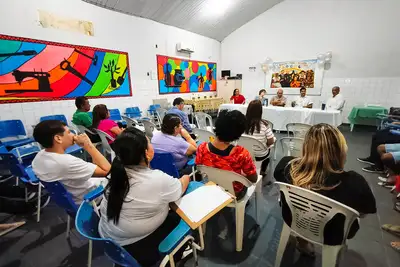State Network intensifies Active School Search to guarantee the right to education
The initiative of the Government of Pará, through Seduc, reintegrates children and adolescents into the school environment, addressing the causes of dropout.
Education transforms lives, but not all children and adolescents manage to reach or stay in school. Due to family, social, or emotional reasons, many end up distancing themselves from the school environment. It is in this context that an essential work stands out: Active School Search. The Government of Pará, through the State Department of Education (Seduc), has implemented strategies to identify, monitor, and support students in vulnerable situations, aiming to ensure the continuity of learning.
According to Seduc, one of the most important actions within this process is the home visit. Going to the student's residence demonstrates the school's commitment to each student, in addition to being an opportunity to understand, more deeply, the reasons that led to the absence. This humanized approach allowed the principal of the State School Professor Emiliana Sarmento Ferreira, Fabrício Santa Brígida, to establish a direct dialogue with the family, understanding the social and family context of the student and building solutions together for their return and permanence in school.
“It is very gratifying to see that our work is yielding results. The actions developed at the school, the welcoming, the involvement, the encouragement to study, the appreciation of the school environment, and the promotion of social transformation are indeed having an effect in the community. We notice this, for example, when we seek a student who had stopped attending school and they return, achieving good results. This is a clear example of the welcoming and partnership with families, which has borne good fruit. Our score in the Ideb rose from 4.7 to 6.4. This is the result of collective effort, the dedication of the team, and the bond with students and their families,” reports Fabrício Santa Brígida, principal of the State School Professor Emiliana Sarmento Ferreira.
Schools have tools to welcome and encourage students
"A child's place is in school, learning, developing, and preparing for now and the future. Whether due to economic issues, family or food insecurity, among other reasons that impact our students' lives, it is also the school's role to provide all possible tools to reach these students, to better support them within the possibilities. The school is also this space of welcome, of guidance; we need to work together so that everyone has the chance to attend school and receive quality education," said Rossieli Soares, Secretary of State for Education of Pará.
State schools carry out daily monitoring of student attendance and maintain an always updated list. When there are justified absences, the guardians come to the school to register the justification. In cases where there is no justification and phone contact is not possible, the team conducts home visits to understand and monitor the situation.
At the State School Graziela Moura Ribeiro, which currently serves 535 students from Elementary School II and full-time High School, the limit of unjustified absences per student is five. “Active Search is essential to bring the student back to school and reinforce the importance of education for their future. At school, we monitor attendance daily with the support of technology, which provides us with data on attendance, absences, and performance. When there are frequent absences, we try to contact the guardians, and if we cannot, we conduct visits to the homes,” says Carmem Noronha, principal of the Graziela Moura Ribeiro School.
'If the student does not come to school, the school goes to them,' says school principal
School principal Carmem Noronha emphasizes that, "during the visits, we find various realities, such as students who care for sick family members. We guide about the need for justifications and sensitize the teachers. If the student does not come to school, the school goes to them, always with the goal of building, together, a stronger education for Pará,” she states.
During this month of May, schools from all 144 municipalities are united in a major action: the 'Active School Search Mobilization'. Educators, managers, and school communities are committed to locating and reintegrating students who, for various reasons, have distanced themselves from school.
In the municipality of Medicilândia, the State School Francisca Gomes dos Santos carried out actions that included, in addition to home visits, leafleting, conversation circles with families, meetings with school councils, and individual contacts with students. “Last week, we conducted an Active Search leafleting in the most remote neighborhoods of the city and we are already starting to see positive results: some students are returning to classes. We also organized a game night with parents and students, in addition to a council with parents and guardians. These actions we have carried out are indeed having an effect,” reports Grace Samuelsson, principal of the State School Francisca Gomes dos Santos.
Students are involved in the mobilization about the importance of studies
Many students actively participated in the actions of the Active School Search, helping to raise awareness in the community about the importance of presence and permanence. “In my class, there were no cases of excessive absences, but I noticed the return of some classmates. The Mobilization Week showed how essential presence at school is and revealed that, in other classes, there is a lot of infrequency. Education is a right, and being in school is also a duty,” stated Davi Neto, a student in the 2nd year of High School at the State School Francisco Nobre de Almeida, in Monte Alegre.
Beyond social, family, and emotional issues, having an educational process that dialogues with the reality of students is also a very relevant point, as highlighted by the secretary. "Our students need to see school as an opportunity to improve their lives; the school needs to engage with the real needs of each of them, proposing feasible learning. For this, we have invested in a robust curricular matrix, with more class time and updated, in quality school meals, in full-time schools, in infrastructure, in safety and school harmony, in the curricular component of Life Project - responsible for transversalizing learning with the goals and dreams of students - among other fundamental actions and programs such as Bora Estudar," he explained.
Bora Estudar - Launched in September 2023, Bora Estudar is the largest program for recognizing school performance for students in the state network; the check is delivered through the housing program "Sua Casa," which can be used for the purchase of construction materials for the renovation and expansion of students' homes, in a partnership between Seduc and the Housing Company (Cohab).
In its first edition, Bora Estudar awarded checks of R$ 10,000 to students who obtained scores of 900 or higher in the Essay of the National High School Exam (Enem) 2023 or who had better performance in the classroom. The State Government has already delivered 16,500 checks from the Bora Estudar program, an investment of R$165 million for the students.
Full-Time Education Program (PEI) - The State has already established 162 schools with this model, exceeding the number of these institutions in the state public education network by more than five times. In 2018, full-time schools in Pará served 6,000 students; by 2025, there was a leap to 48,000 enrollments, an eightfold increase in capacity. A result that reflects the State's commitment to providing more opportunities for students, with access to quality full-time education.
New curricular matrix - Another strategy that contributes to the positive results of the state public network is the new curricular matrix proposed by Seduc, since 2024. The workload of the offered subjects has been increased, from 1,800 to 2,400 hours, which ensured more learning time for the 500,000 students in Pará. Curricular components such as Portuguese Language and Mathematics gained two more class periods, going from three to five periods. A class period was also added in the curricular components of Biology, Chemistry, Physics, History, and Geography. Uniquely in Brazil and the world, the Curricular Matrix even offers the component of Environmental Education, Sustainability, and Climate, mandatory for all stages of education.
More than just bringing the student back, Active School Search strengthens the bond between school, family, and community, and enhances the idea that education transforms lives. Throughout Pará, the initiative aims to ensure that no child or adolescent is left behind.


